Annals of Case Reports and Images (ACRI) is a peer-reviewed open access scientific journal published by SciTeMed Publishing Group. Annals of Case Reports and Images aims to serve as an important educational resource to enhance clinical outcomes and healthcare quality by disseminating a high volume of cases in all medical disciplines. ACRI provide a platform where healthcare professionals, researchers can easily find clinically important information on common and rare conditions.
Annals of Case Reports and Images covers all areas of medicine, nursing, dentistry, and biotechnology.

Dr. Bullock is a graduate of Dartmouth College and Harvard Medical School. He completed an internship in internal medicine at Washington University in St. Louis before serving in the U.S. Navy. After residency training in ophthalmology at Yale University, he completed fellowships at the University of California, San Francisco, and the Mayo Clinic. He received a Master of Science degree in Microbiology and Immunology from Wright State University and a Master of Public Health degree from the Harvard School of Public Health. He completed additional training from the Armed Forces Institute of Pathology, the CDC in Atlanta, the London School of Hygiene and Tropical Medicine, and the Pasteur Institute in Paris. He worked as an Ophthalmologist at the Albert Schweitzer Hospital in Haiti and held a clinical faculty position at Stanford University before coming to Wright State, where he served as Professor and Chair of the Department of Ophthalmology, Professor of Physiology and Biophysics, Associate Professor of Microbiology and Immunology, and was named the Brage Golding Distinguished Professor of Research. Dr. Bullock is the author or coauthor of more than 240 scientific publications. He is a member of Alpha Omega Alpha Honor Medical Society, Delta Omega Honorary Society in Public Health, the American Ophthalmological Society, and the Cornea Society (Member with Thesis). He is a Fellow of the American Academy of Ophthalmology, the Infectious Diseases Society of America, and the American College of Epidemiology. He has received numerous honors and awards. For over ten years, Dr. Bullock has been investigating a worldwide outbreak of Fusarium keratitis (published, in part, in the New England Journal of Medicine), which was traced to an improperly stored and bottled contact lens solution.
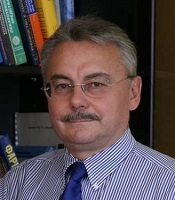
Prof. Renad Alyautdin is the Director of Centre for Expertise of Drug Safety. Prof. Alyautdin is a medical educator and has more than 30 years of experience in academic medicine. He has an extensive research/publication portfolio in areas such as neuropharmacology and ocular pharmacology, as well as drug delivery systems through the blood-brain barrier into the brain, drug delivery into anterior and posterior eye chambers.
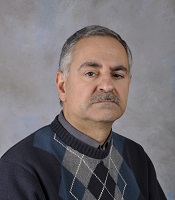
Dr. Sayegh has the required expertise and the necessary training to conduct the proposed research. His academic and professional background as a veterinarian and a neuroscientist, especially his training in rodent surgery and feeding behavior. During the past 16 years of research he has been studying the role of the nerves of the gastrointestinal tract in the reduction of food intake by the gut peptide cholecystokinin (CCK) using immunohistochemical detection of Fos-like immunoreactivity and measuring food intake in normal and surgically altered Sprague Dawley rats. Dr. Sayegh‘s laboratory is considered the only feeding laboratory that utilizes enteric Fos-like immunoreactivity. During this period his team produced 46 peer-reviewed research articles and other review articles, book chapters and proceedings. He has collaborated with world-renowned scientists in the fields of ingestive behavior and peptide biochemistry including Gerard P. Smith, and James Gibbs, who published the original work on GRP and CCK and trained me to conduct feeding behavioral analysis, and Joseph Reeve Jr, who discovered GRP-29 and CCK-58 which will be used is this proposal. As a program manager, PI or co-PI on several current and previous university- and NIH-funded grants, Dr. Sayegh laid the groundwork for the proposed research. He developed the intra-arterial catheterization technique and we purified CCK-58 and GRP-29. In addition, Dr. Sayegh’s team established the use of the automated feeding system, the BioDAQ system, to measure and analyze food intake and many other feeding behaviors that they will determine in this proposal. Dr. Sayegh’s team is the only laboratory in the feeding behavior area that uses intra-arterial catheterization to deliver satiety peptides to their specific gastrointestinal sites of action and we are the only laboratory that utilizes CCK-58 and GRP-29. They generated all of the feeding data by this technique and by these peptides as shown by their publication record. Using the unique techniques they were able to determine the site of action for GRP-29, CCK-58 and GLP-1, which will be utilized in the current proposal to help to measure body weight changes influenced by these peptides in the DIO rat model. Working in a minority black institution allowed Dr. Sayegh to receive an SC1 award prior to this application (2010-2016). All the findings generated by that application form the foundation for the current proposal, including the discovery and synthesis of GRP-29, the development and mastering of the intra-arterial catheterization technique and determination of the specific gastrointestinal sites of action that regulate meal size and intermeal interval length by CCK-58, GRP-29 and GLP-1.
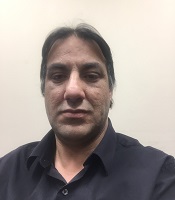
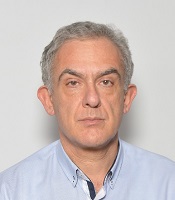
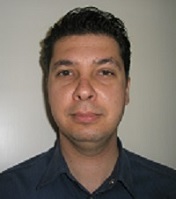

Prof. Zhenghong Wu is a professor in pharmaceutics and a vice Chair of the Nanjing Pharmaceutical Association, he is also a licensed Pharmacists in China. Dr. Wu is a member of several journal editorial boards as well as reviewers for over a dozen pharmaceutical and drug delivery journals. He also serves as a reviewer for the National Natural Science Foundation of China, and China Academic Degrees & Graduate Education Development Center of the Ministry of Education. Prof. Wu received his PhD (pharmaceutics, in 2003) and MS (pharmaceutical analysis, in 1997) from China Pharmaceutical University. He worked as vice dean of Pharmacy School in Xinjiang Medical University from 2014 to 2016, as visiting scholar in Rutgers University (USA) from 2012 to 2013, as assistant mayor in Taixing Municipal Government of Jiangsu Province from 2010 to 2011, as postdoctoral fellow in Academy of Military Medical Science (Beijing, China) from 2003 to 2005. He served as clinical pharmacist in the First Affiliated Hospital of Anhui Medical University from 1990 to 1994, in the Drum Tower Hospital Affiliated to Nanjing University from 1997 to 2003. He joined the Department of Pharmaceutics, China Pharmaceutical University as assistant professor in 2003, and later became associate professor in 2005. From 2006 to 2016, He served as deputy director of the Experiment Center for Pharmacy. Dr Wu has published more than 150 publications including papers, book and textbook chapters, conference proceedings, and patents. He has trained more than 60 PhD/MS students, and visiting scholars. His research is funded by National Basic Research Program of China, the National Natural Science Foundation of China, and other national sources. His group’s main research focus lies in the area of biopharmaceutics, targeted drug delivery, nanotechnology (polymers, dendrimers, liposomes, etc.) for cancer treatment, molecular targeting; use of macromolecules for drug delivery, modified-release preparations.
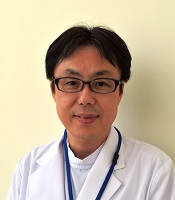
Dr. Toru Watanabe is an Associate Manager of the Department of Pediatrics, Niigata City General Hospital in Japan. He graduated from Niigata University School of Medicine in 1985, and has been working at the Department of Pediatrics, Niigata City General Hospital until now. He got a PhD from the Department of Cell Biology, Institute of Nephrology, Faculty of Medicine, Niigata University in 2002. His specialty is Kidney diseases, especially pediatric nephrology and renal tubular disorders. He was given the Plenary Presentation Award in 1994 and the Best Clinical Research Award in 1999 from the Japanese Society for Pediatric Nephrology, an Honorary Title of Leading Article to his article in 2013 from European Journal of Pediatrics, a Key Scientific Article, featured in Global Medical Discovery (Canada) in 2013, and a Cutting-Edge Biomedical Research, featured in World Biomedical Frontiers (USA) in 2013, and Sentinel of Science Award in 2016 from Publons (NZ). He published more than 90 papers in peer reviewed international journals. He has reviewed more than 500 manuscripts submitted to international journals including JAMA, Am J Kidney Dis, Pediatr Nephrol, J Pediatr, Pediatrics, Pediatr Res and others. He is an Editorial Board Member of 35 international journals.


Prof. Alenzi received his Master of Science and PhD from the Imperial College, School of Medicine, University of London, UK. He served as Dean of College of Applied Medical Sciences, Al-Kharj University, Saudi Arabia. He is currently a Professor of Immunology at the Salman bin Abdulaziz University (Al-Kharj), Saudi Arabia. Prof. Alenzi is a distinguished researcher, he has more than 130 indexed scientific publications. Prof. Alenzi is also an author of Three Books in Immunology and a co-author of Fundamentals of Cancer biology. Prof. Alenzi is the Founding Editor of the “Saudi Journal of Applied Sciences” under Princess Noura University. He also serves as an Editor for British Journal of Medicine and Medical Research.
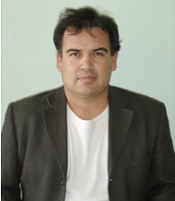
Prof. Fraga received his PhD in Physics from the University of Guanajuato with research stages at the University of Sao Paulo and Vanderbilt University. He is currently a Titular Professor at the science and engineering division from the University of Guanajuato. Prof. Fraga has an extensive national and international research and publication portfolio in the areas of Biomagnetism such as measurement of magnetic fields in biological systems, stomach mechanical activity, motility, colon transit time and pulsed wave velocity of the heart, Natural Oral Contrast to MRI of the GI tract, implementation of Ultrasound to gastric evaluation, medical instrumentation for cardiac evaluation and magnetic hyperthermia, Magnetobiology and biomedical instrumentation of different portable devices. Prof. Fraga’s current research projects include aorta wave behavior on skin level by using biomagnetic technique, gastric emptying by monitoring a non digestible magnetic particles, effects of the magnetic field on cells growing, magnetic signal processing of MRI and Ultrasound, instrumentation and evaluation on cells grown, evaluation of dislocations hip in newborn by sound, signal processing, sound transference through human systems.
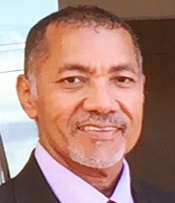
Dr. Tavares is a Full Professor of Pharmaceutical Sciences and Medicine at the Federal University of Amapa, Amapá, Brazil. He is also a lecturer in Graduate Program in Tropical Biodiversity and Pharmaceutical Sciences. Dr. Tavares research interest are in the areas of non-Clinic Studies, nanomedicine, anti-inflammatory, analgesic and new gastric anti-ulcer.

Prof. Fourtounas completed his Medical Degree from the Medical School of Thessaloniki University, Greece. Later he received his PhD degree from Athens Medical School, University of Athens. Prof. Fourtounas is an active researcher with extensive publications, he authored more than 80 academic articles published in SCI journals. He serves in the editorial board and as peer reviewers of highly ranked international peer-reviewed journals. He is currently an Associate Professor at the Department of Internal Medicine from the University of Thessaly.
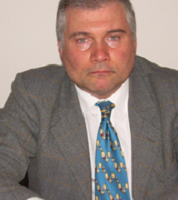
Dr. Italo Giuffre' is a Consultant at the Department of Ophthalmology at Catholic University of Rome (Italy) since 2009 and Lecturer at the Orthoptics School in Bozen (Italy). He graduated as Medical Doctor cum laude at Tor Vergata University in 1988. In 1992, Dr. Giuffre' postgraduated cum laude in Ophthalmology at Sapienza University. He received a PhD in Neuropaediatrics and malformative diseases at Sapienza University. Dr. Giuffre is an active researcher with extensive publications, his publications include one book about Genetics of Eye diseases, INC Editor 2000, five chapters in international books about ibopamine, apoptosis and tumorigenesis and genetics of glaucoma and over 80 articles in peer-reviewed journals. His current research interests focus on cataract, glaucoma, hereditary eye diseases, orbit, paediatric ophthalmology and refractive surgery.

Dr. William Cho is a Biomedical Scientist in Queen Elizabeth Hospital. His main research interests have been focusing on cancer studies utilizing high-throughput technologies to discover biomarkers for cancer diagnosis, treatment prediction and prognostication. He is a Chartered Scientist granted by the Science Council (UK), a Registered Chinese Medicine Practitioner (HK), Guest Professor of a number of Universities and a Fellow Member of several institutes, including the Institute of Biomedical Science (UK), Hong Kong Institute of Biomedical Science and Hong Kong Society for Molecular Diagnostic Sciences. Dr. Cho has published over 200 peer-reviewed papers (Lancet Oncology, Clinical Cancer Research, Clinical Chemistry, Annual Oncology, etc) covering cancer biomarkers, proteomics, microRNAs, Chinese medicine and plenty of books including "MicroRNAs in cancer translational research", "An omics perspective on cancer research", "Supportive cancer care with Chinese medicine", etc. He serves as the Editor-in-Chief, Editor and Associate Editor of a number of international medical journals. Dr. Cho is also an international renowned grant reviewer of the Hope Funds for Cancer Research (USA), Cancer Research (UK), MRC Research Grant (UK), Health Research Board (Ireland), Science Foundation (Ireland), Istituto Toscano Tumori (Firenze), The Foundation Fournier-Majoie for Innovation (Brussels), National Medical Research Council (Singapore), The Medical Research Council (South Africa), and Academia Sinica Investigator Award (Taiwan), etc.


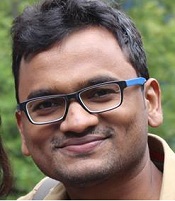
Dr. Praveen Kammar has extensive experience in assisting and operating in robotic coorectal surgeries on Da-Vinci Xi robotic system platform, operating colorectal malignancies laparoscopically, cytoreductive surgeries and intraperitoneal chemotherapy for advanced colorectral,ovarian and peritoneal malignancies. Dr. Kammar’s clinical interests lie in minimal access surgeries ( laparoscopic and robotic and endoscopic ) of GI tract malignancies. Dr. Kammar is active in academic activities including research publications and medical statistics.
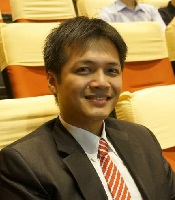
Dr. Chin-Lung Kuo is the Director of the Department of Otolaryngology, Taoyuan Armed Forces General Hospital, Taiwan, ROC. Dr. Kuo received his medical degree from the National Defense Medical Center and earned his PhD degree at the Institute of Brain Science, National Yang-Ming University, Taiwan, ROC. He completed his otolaryngology residency, chief residency, and fellowship training at the Department of Otolaryngology-Head and Neck Surgery, Taipei Veterans General Hospital, Taiwan, ROC. Dr. Kuo continues to make contributions to the scientific community. His primary field of study is otology, and his research is focused on middle ear surgery and hearing loss. Dr. Kuo has been invited to speak at international conferences and institutes. Dr. Kuo has been the first or corresponding author on more than 50 published articles in the last 5 years, including SCI original papers, review articles, as well as book chapters. In 2012, his research paper was chosen as the cover story of the journal Audiology and Neurotology. In addition, Dr. Kuo received the Outstanding Paper Award from the Laser Medicine Education and Research Foundation in 2013, and was awarded the 2015 Hayashi SPIO (Society for Promotion of International Otorhinolaryngology) Scholarship in Japan. Dr. Kuo believes that increased availability of research data can benefit both medical research and science education. For further details regarding his research, please use the following link to access his blog.

Authors describe a 4-year-old boy with a moderate secundum atrial septal defect who developed rapidly progressive heart block after device closure. After surgical removal and patch closure he had gradual return to sinus rhythm. This report highlights the continued needed vigilance of heart block after atrial septal defect device closure.
A 55-year-old postmenopausal lady was presented with recurrent carcinoma of ovary. A computed tomography scan of the abdomen was performed after neoadjuvant chemotherapy, showing retroaortic left renal vein and precaval right renal artery, along with the resolution of previous vaginal vault lesion. The intraoperative findings revealed a peritoneal carcinomatosis index of 3, according to an incidental deposit found on the vaginal vault infiltrating into the rectum. During retroperitoneal lymph node dissection, as part of the procedures in cytoreduction, aberrant renal vessels were identified. A complete clearance was done safeguarding the vessels as seen in the intraoperative image.
Radiation forms a vital part of neoadjuvant treatment in locally advanced rectal cancer (LARC) and recurrent rectal cancers. The adverse effects of radiation are well recognized; however, radiation-induced perforation at the tumour site is very rare and is poorly understood. A symptomatic rectal perforation requires an emergency surgical intervention. However, it may present silently and can give rise to suspicion of disease progression and/or residual disease on imaging. Authors present two cases of silent perforations. Both gave rise to a considerable diagnostic dilemma, which was resolved by careful evaluation with MRI.
Management of children with severe tracheomalacia is very difficult. Most cases require mechanical ventilation; the mortality rate from severe tracheomalacia is as high as 80%. Crying is often triggered, the respiratory condition gets worse, and eventually, it leads to death. For severe cases, surgical treatment should be considered immediately. Meanwhile, the prevention of fatal attacks by medical treatment is indispensable while waiting for surgery. In this report, a method to manage the patients with severe tracheomalacia using muscle relaxant was discussed. Based on clinical experience, continuous administration of 7 μg/kg/min of rocuronium was required to prevent life-threatening cyanotic attacks. However, the infusion requirements of rocuronium would show patient-to-patient variability. Further, case reports and evaluation of the effectiveness of muscle relaxants for the treatment of severe tracheomalacia were required.
Most isolated syndromes of Eight-and-a-Half Syndrome are associated with vascular etiology. Symptomatic trigeminal neuralgia due to infarction is rare. The author reports a patient with left-sided facial pain. It was followed by one-and-a-half syndrome with facial nerve palsy during the next day. Diffusion-weighted magnetic resonance imaging of his head revealed restricted diffusion in the left inferior pontine tegmentum neighboring the fourth ventricle extending ventrally. This case is the first report of Eight-and-a-Half Syndrome presented with recurrent attacks of unilateral facial pain, fulfilling criteria for classical trigeminal neuralgia.
Authors report a new perspective on the case of a 22-year-old female with no significant medical history who posed a diagnostic and therapeutic challenge; a giant cystic mass of the abdominal cavity.
Authors report a young girl with an HNF1β mutation, who had a history of neonatal cholestasis, persistent liver dysfunction, and developed insulin-dependent diabetes without renal involvement. Further, authors review the literature related to the hepatic involvement associated with HNF1β mutations.
Esophageal granular cell tumors (GCT) represent a rare entity of tumors of the esophagus. Patients with esophageal GCTs are usually asymptomatic, with the lesion most commonly presenting as an incidental finding on endoscopy. The GCTs of the esophagus are poorly understood in medical literature. It is unknown if they undergo malignant degeneration, whether the malignancy can be diagnosed preoperatively, and how the tumor can be managed. The authors evaluated the clinical and pathologic features of all esophageal GCTs at their institution to understand them better.
Proximal fecal diversion is the treatment of choice in the cases of extra-peritoneal rectal injuries that are not amenable for primary repair due to their distant location or high grade. The posterior approach enables complete excision of well-defined abscess cavities that communicate with the rectal lumen with full-thickness repair of the rectal defect. An important privilege of pouch excision through the posterior approach was the preservation of rectal reservoir and the sensation that would have been compromised if proctectomy with coloanal anastomosis was alternatively performed.
Cannabis remains one of the most universally abused recreational drugs. Cannabis abuse can have several cardiovascular adverse effects and an overdose can lead to cardiac arrest. Binge alcohol drinking and subsequent withdrawal in the background of cannabis overdose can lead to convulsion and QT prolongation leading to malignant arrhythmia. We report two cases of ventricular fibrillation complicated with seizure precipitated by cannabis overdose and alcohol withdrawal. Such serious clinical presentation complicated with cardiac arrest does not necessarily lead to a fatal outcome if timely medical attention and care are provided. Timely aggressive resuscitative measures combined with intensive care can lead to a successful outcome. Later on, psychiatric counseling and occupational and behavioral therapies can help them to live longer.